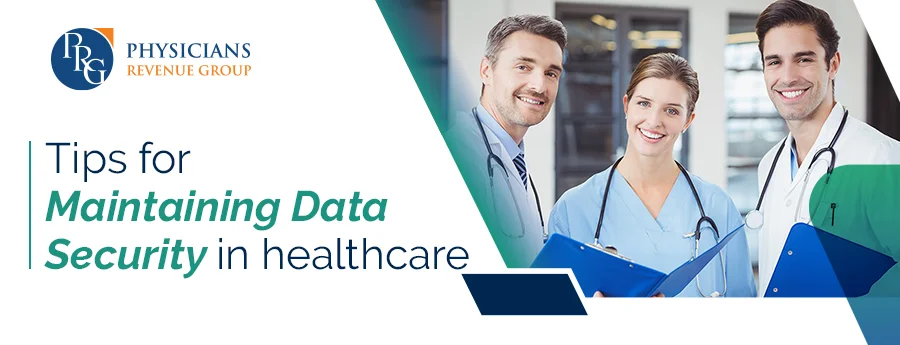
Email: info@prgmd.com | Call: +1 (630) 242-6474
Business hours: 9:00 to 5:00 | Monday to Friday
Email: info@prgmd.com | Call: +1 (630) 242-6474
Business hours: 9:00 to 5:00 | Monday to Friday

Table of Contents
ToggleData security is a big concern in healthcare. Breaches and cyber attacks have surged in recent years. In 2020 alone, there were nearly 600 breaches, and recovery is time-consuming and expensive. On average, it takes 236 days to recover from a breach, and costs $500 per compromised record.
To protect patient data, healthcare organizations must be vigilant against attacks and breaches. Also, implementing healthcare data security measures is crucial for keeping records safe and complying with HIPAA rules.
The HIPAA Security Rule requires physicians to:
By following these rules and implementing data security solutions, healthcare practices can better protect patient data and ensure compliance with HIPAA regulations.
Healthcare operations often have a larger workforce compared to other types of organizations. With more employees, there is a higher risk of data compromise, such as:
Moreover, the risk of a security breach rises when numerous business associates have access to the data.
They must use various security measures to protect data from breaches and attacks. The most secure organizations strategically implement these data security solutions in their daily practices.
System monitoring apps keep an eye on everything that happens in a data system. They record who is doing what – updating, accessing, deleting, or moving patient files. When something suspicious occurs, these apps immediately alert the IT team of the organization.
Installing these apps is crucial because they help in several ways:
For example, the IT account manager can use these apps to control access and ensure employees only get the information they need for their specific roles.
Training employees is as important for data protection as using anti-virus programs and encryption. Making sure that all staff, volunteers, business associates, and other third-party medical billing services know how to stay alert against data attacks is crucial for keeping data safe from hackers.
Data attacks are a big problem for medical organizations. They can cause many issues, such as:
Share:
Categories
Recently Added

What is an ABN in medical billing?

What does a Clearinghouse do During Claims Submission?

What is EOR in Medical Billing?
We Would Love to Assist You!
We treat your data confidentially and don’t share any information with a third party.